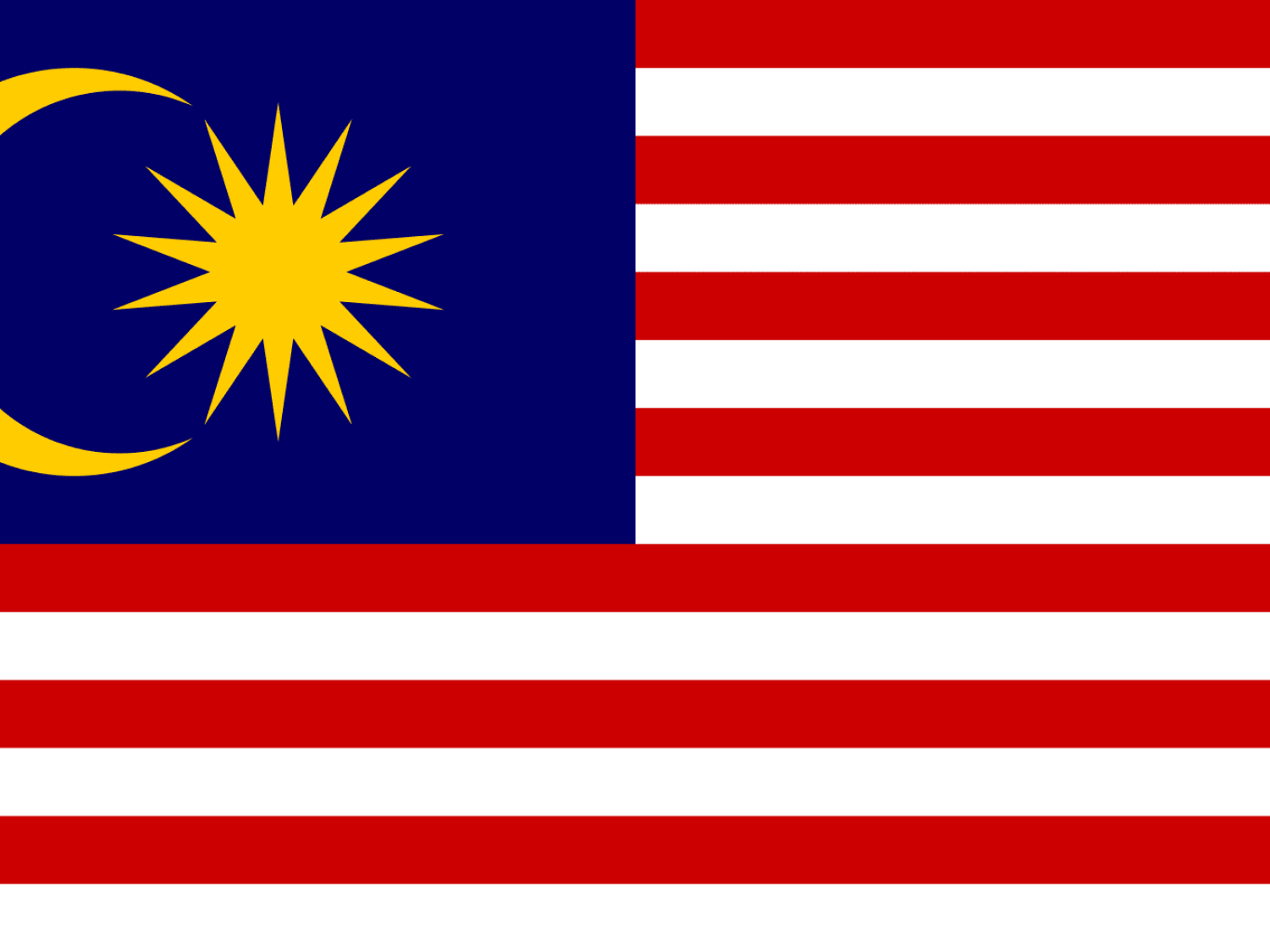Moving to Malaysia
Simply move better with reloqio
✔️ Get offers free of charge – No obligation, no worres.
✔️ Quality-tested partners – Reliable and experienced.
✔️ Selection in your region – Find the perfect offer and save up to 45%.

Overview
Introduction to Malaysia
Malaysia, located in Southeast Asia, is a diverse and rapidly developing country known for its rich cultural heritage, stunning natural landscapes, and vibrant cities. The capital, Kuala Lumpur, is a bustling metropolis famous for its iconic Petronas Towers, modern infrastructure, and multicultural population. Malaysia offers a mix of urban living, tropical rainforests, and beautiful beaches, making it a desirable destination for both work and leisure. However, while Malaysia offers a relatively high standard of living, expatriates may face challenges such as navigating the complex bureaucracy, dealing with traffic congestion, and understanding the country’s multicultural dynamics.
Why Move to Malaysia
Moving to Malaysia offers the opportunity to experience life in a country that combines modernity with tradition. Malaysia’s low cost of living, excellent healthcare, and diverse culture make it an attractive destination for expatriates. The country’s strategic location in Southeast Asia also makes it an ideal base for exploring the region. English is widely spoken, particularly in business and urban areas, which eases the transition for many expatriates. However, it’s important to be aware of the country’s complex social and political landscape, as well as the challenges related to bureaucracy and the sometimes unpredictable weather.
Cost of Living in Malaysia
The cost of living in Malaysia is generally low compared to Western countries, particularly in terms of housing, food, and transportation. Kuala Lumpur, while more expensive than other parts of the country, still offers affordable living options, especially for those who choose to live outside the city center. Groceries and dining out are also inexpensive, with a wide range of options from street food to fine dining. However, imported goods, alcohol, and international school fees can be expensive. Overall, expatriates find that they can enjoy a comfortable lifestyle in Malaysia at a relatively low cost, especially if they budget carefully and avoid luxury goods.
Visa and Residency
Types of Visas
Malaysia offers several types of visas, including tourist, business, and work visas. The work visa, also known as an Employment Pass, is the most common visa for expatriates and requires sponsorship from a Malaysian employer. The application process involves submitting various documents, such as proof of employment, educational qualifications, and a valid passport. The Malaysia My Second Home (MM2H) program is another popular option, offering long-term residency to retirees and others who meet certain financial criteria. It’s important to ensure that you apply for the correct visa type and that all documentation is accurate to avoid delays or complications.
Requirements for Obtaining Residency
Obtaining residency in Malaysia typically begins with securing a work visa. Once in Malaysia, expatriates can apply for a residence pass, which is usually tied to their employment. The process involves submitting proof of employment, housing arrangements, and sometimes a health check. Residence passes are generally valid for one to five years, depending on the type, and can be renewed as long as the expatriate remains employed. Permanent residency is more challenging to obtain and usually requires several years of continuous residence in Malaysia, along with proof of financial stability and integration into the local community.
Renewing Residency
Renewing residency in Malaysia involves extending your work visa and residence pass. The renewal process typically requires submitting updated proof of employment and housing, along with any other relevant documents. It’s advisable to start the renewal process well before your current permit expires to avoid any legal issues. Employers often assist with the renewal process, but it’s crucial to stay informed about any changes in immigration laws and ensure all paperwork is submitted on time.
Finding Accommodation
Popular Neighborhoods in Malaysia
In Kuala Lumpur, popular neighborhoods for expatriates include Mont Kiara, Bangsar, and KLCC (Kuala Lumpur City Centre). Mont Kiara is known for its international schools, modern condominiums, and expat-friendly amenities. Bangsar offers a mix of trendy cafes, shopping centers, and a strong sense of community, making it a popular choice for families. KLCC is the heart of the city, with luxury apartments, high-end shopping, and proximity to business districts. Outside of Kuala Lumpur, cities like Penang and Johor Bahru are also popular among expatriates, offering a more relaxed lifestyle with access to beaches and nature. Housing in these areas can vary widely in price, depending on the location and type of property.
Renting vs Buying Property
Renting is a common option for expatriates in Malaysia, especially for those on short- to medium-term assignments. Rental properties are widely available, ranging from modern apartments to more traditional homes, with prices varying significantly based on location and property type. Leases typically require a security deposit and the first month’s rent in advance. Buying property in Malaysia is possible for foreigners, particularly under the Malaysia My Second Home (MM2H) program, which allows foreigners to purchase property above a certain price threshold. It’s advisable to work with a reputable real estate agent and legal advisor if considering purchasing property in Malaysia.
Tips for Finding Accommodation
When searching for accommodation in Malaysia, consider factors such as proximity to work, access to public transportation, and availability of amenities like schools, healthcare, and shopping centers. Working with a local real estate agent can be helpful, especially for expatriates unfamiliar with the market. It’s important to inspect properties carefully before signing a lease, as the quality of housing can vary widely. Be prepared to negotiate rental terms, and ensure that all lease agreements are clear and legally sound. Given the high demand for quality housing in popular areas, it’s advisable to start your search early and be prepared to act quickly when you find a suitable property.
Malaysia’s location in Southeast Asia offers easy access to neighboring countries, providing ample opportunities for regional travel. For those interested in exploring the region, the cultural richness and historical sites of Thailand, the bustling cities of Singapore, or the tropical islands of Indonesia are all within reach.
Settling In
Healthcare System in Malaysia
Malaysia has a well-developed healthcare system, with both public and private options available. Public healthcare is affordable and generally of good quality, but many expatriates prefer private healthcare facilities, which offer higher standards of care, shorter waiting times, and English-speaking staff. Private healthcare is also relatively inexpensive compared to Western standards, making it accessible for most expatriates. It’s important to have comprehensive health insurance that covers private healthcare costs. Malaysia’s hospitals and clinics are modern and well-equipped, particularly in major cities like Kuala Lumpur, making it a reliable place for both routine and specialized medical care.
Education System in Malaysia
Malaysia offers a variety of educational options for expatriate families, including public schools, private schools, and international schools. Public schools follow the Malaysian curriculum and teach in Malay, which can be challenging for non-Malay-speaking children. Most expatriate families opt for international schools, which offer curricula based on British, American, or International Baccalaureate (IB) systems. These schools are primarily located in Kuala Lumpur, Penang, and Johor Bahru and are known for their high academic standards, though fees can be high. Early application is recommended, as spaces in international schools can be limited, particularly in popular grades.
Cultural Etiquette and Customs
Malaysia is a multicultural society with a rich blend of Malay, Chinese, Indian, and indigenous influences. Understanding and respecting local customs is important for expatriates. Islam is the official religion, and it is important to dress modestly, particularly in rural areas or when visiting religious sites. Social interactions are generally formal, and showing respect in both personal and professional settings is crucial. The concept of “saving face” is important in Malaysia, so it’s advisable to approach disagreements diplomatically. Learning some basic Malay can also enhance your experience and help you integrate more smoothly into Malaysian society.
{filterable_table}
Ready for your move to Malaysia? Get free quotes now!
Enquire about moving offers here and get quick answers with cost estimates.
It only takes 2 minutes and you can save up to 45% on your move to Malaysia!
